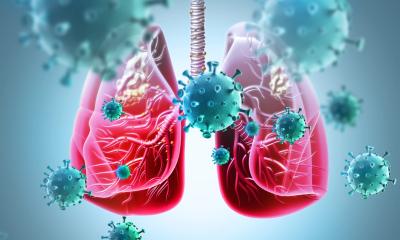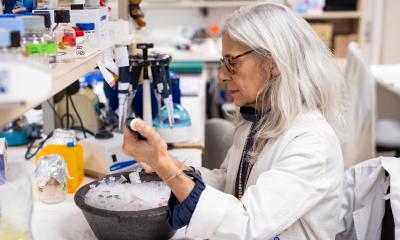Image source: Unsplash/Davyn Ben
News • Risk assessment
Understanding the spread of COVID-19 on public transport
Researchers at Newcastle University are involved in a study to understand the risks of COVID-19 transmission on public transport and to identify the best measures to control it.
Known as Project TRACK (Transport Risk Assessment for Covid Knowledge), the study will conduct fieldwork on buses and trains in London, Leeds and Newcastle, including the Metro system in Tyne and Wear.
Led by the University of Leeds and with support from the Department for Transport and several transport organisations, the investigation will involve taking air and surface samples on parts of the transport network to measure background levels of the coronavirus. The researchers will develop detailed simulations of the way the virus could potentially spread through airflow, from touching contaminated surfaces and from being close to someone infected with the virus. It will create models that will quantify the level of risk faced by passengers and transport staff – and that will help Government and transport operators decide if additional mitigation measures are needed, particularly when passenger numbers begin to return to the levels seen prior to the pandemic.

Image source: Newcastle University
Professor Phil Blythe, Professor of Intelligent Transport Systems, Newcastle University, and Chief Scientific Adviser at the Department for Transport, said: “The transport industry has been doing a brilliant job keeping public transport COVID-secure for its workers and passengers throughout the pandemic. We need to deepen our understanding of COVID transmission in public transport and keep applying the latest science to our work across the network to reduce transmission – studies like this one will help do just that. Evidence gained from TRACK will help inform policy decisions and the development of effective and well-informed control strategies. This scientific study, involving some of the country's leading experts, will be useful not just for transport, but also to other sectors in the fight against COVID-19.”
Under existing legislation, people using public transport are required to wear a face covering, unless exempt. In addition, they are encouraged to keep a social distance of at least one metre and to wash their hands after travelling. TRACK will analyse the movement and behaviour of people as they pass through transport systems: where they sit or stand, what surfaces they touch, and how close they may be to other travellers and for how long.
The researchers hope to measure the effectiveness of new interventions such as anti-viral coatings on high-touch surfaces, ultraviolet air-disinfection units on buses and trains, and cleaning compounds. The modelling and data analysis will involve experts from Newcastle University’s Urban Observatory and School of Computing, working with the universities of Leeds and Manchester, and the Defence Science and Technology Laboratory. They will generate anonymised data from a sample of real-world journeys and passengers, and using machine learning to further safeguard privacy, will explore how passenger behaviour changes with time and crowding.
This research will plug a knowledge gap. It will allow transport operators to identify the most important risks and devise ways they can further reduce the risks of passengers getting COVID-19
Cath Noakes
Professor Cath Noakes, based in the School of Civil Engineering at the University of Leeds, said: “Scientists are unclear how much the virus spreads in the enclosed space of a train or bus, and whether it is from particles in the air or from touching contaminated surfaces or by being near an infected person. This research will plug a knowledge gap. It will allow transport operators to identify the most important risks and devise ways they can further reduce the risks of passengers getting COVID-19.”
Environmental sampling of the virus will be undertaken by Public Health England. Researchers at the University of Cambridge and Imperial College London will investigate the analysis of airflows inside carriages. The research is funded by a £1.6 million grant from UK Research and Innovation.
Source: Newcastle University
25.10.2020











